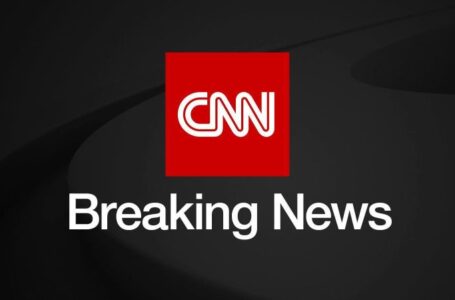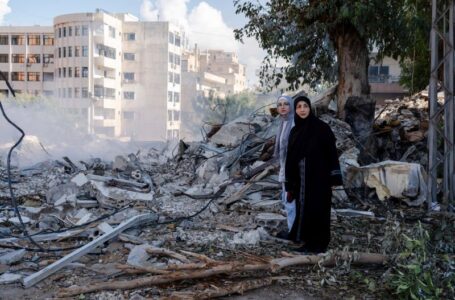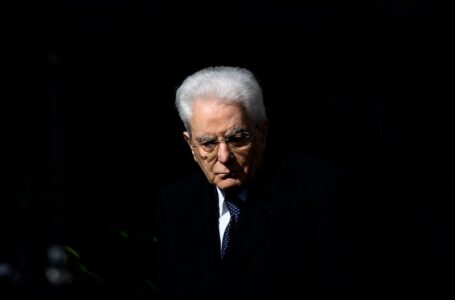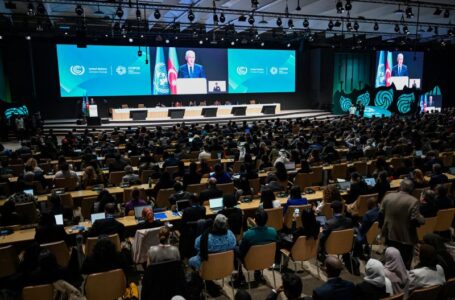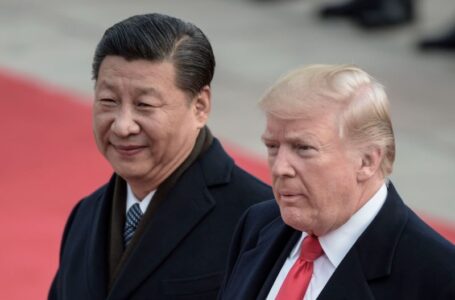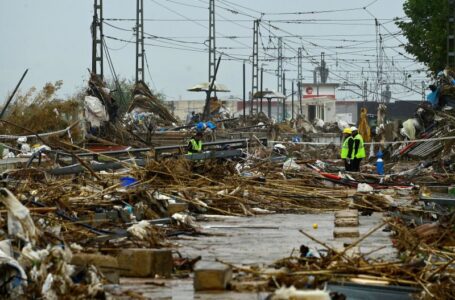Two explosions near Brazil’s supreme court are ‘suicide attack’: authorities
Ukraine’s forces withdraw from key eastern town of Avdiivka after months of fighting
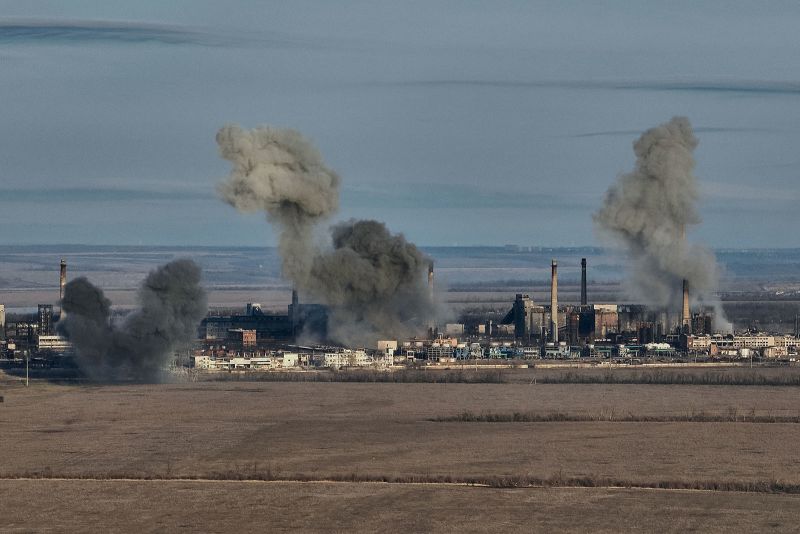

Ukrainian forces have announced the withdrawal of its forces from Avdiivka, a key town which in recent months became one of the most fiercely contested battles on the eastern front.
The move followed an intensification of Moscow’s attacks on the area, as Russia pummeled it with airstrikes and artillery and sent wave after wave of ground assaults by armored vehicles and soldiers.
While the town’s strategic significance is limited, Avdiivka marks the biggest gain for Moscow since it captured the city of Bakhmut last year and is an indication of how the war appears to have turned in Putin’s favor.
Ukraine meanwhile faces renewed pressure across the eastern front, compounded by ammunition and manpower shortages.
Speaking at the Munich Security Conference on Saturday, Ukrainian President Volodymyr Zelensky said that the decision to pull back from Avdiivka was made to “save our soldiers’ lives.”
“In order to avoid being surrounded, it was decided to withdraw to other lines. This does not mean that people retreated some kilometres and Russia captured something, it did not capture anything,” he added.
Avdiivka has been on the front lines since Russian-backed fighters seized large portions of the Donbas region, including the nearby city of Donetsk, in 2014. It has been under fire since Russia launched its full-scale invasion in February 2022.
Withdrawing from the town, to the northwest of Donetsk city, was “the only correct solution,” Ukraine’s commander of southern forces Oleksandr Tarnavskyi said in a Telegram post Friday, adding that some Ukrainian troops had been captured by Russia during the process.
“In a situation where the enemy is advancing on the corpses of their own soldiers with a ten-to-one shell advantage, under constant bombardment, this is the only correct solution,” he said. Russian troops are “numerically superior in terms of personnel, artillery and aviation,” Tarnavskyi added.
Moscow’s forces had carried out 20 airstrikes and more than 150 artillery attacks in the area over the past 24 hours, he said, adding that the Russians were “practically erasing the city from the face of the earth.”
The decision comes just days after Ukraine’s new military chief Oleksandr Syrskyi and Defense Minister Rustem Umerov visited the front lines in Avdiivka, pledging to send reinforcements to “prevent the enemy from advancing deeper into our territory.”
However, by Thursday, Ukrainian forces battling to hold the town were describing “hellish” conditions and the enemy “coming from all sides”.
Syrskyi said in a Facebook post on Friday that he ordered the withdrawal “to avoid encirclement and preserve the lives and health of servicemen” and he was moving troops to defend “more favorable lines.”
He said Ukrainian soldiers had done “everything possible to destroy the best Russian military units and inflicted significant losses on the enemy in terms of manpower and equipment.”
Ukraine was “taking measures to stabilize the situation and maintain positions,” he said, adding “the life of military personnel is of the highest value.”
The commander of the Ukrainian 3rd Assault Brigade, which as one of Ukraine’s most battle-hardened units had been sent to defend Avdiivka, said the retreat meant Ukrainian troops could “come back and strike even harder.”
“I am grateful to the command for their considered decision,” Andrii Biletsky said in a Telegram post on Saturday. “I thank the soldiers for the brave fight they put up against the enemy in Avdiivka, in the face of absolute numerical superiority of the Russians in manpower, equipment and shells,” he added.
Russia too has suffered immense losses in its offensive on Avdiivka, but Moscow appears to have calculated that, given its numerical advantage, these were worth it.
A symbol of Ukraine’s struggles
Avdiivka’s loss is an undoubted blow to Ukraine.
A counteroffensive launched months ago aimed at winning back substantial territory has floundered and the country is seeing signs that once rock-solid support from the West is waning, not least from its key ally US.
And with Ukraine on the back foot on other parts of the front, Ukraine’s new army chief Syrskyi faces a huge challenge bringing the fight back to Russia.
Moscow’s troops went on the offensive around Avdiivka in October. Since then, it became a point of intense combat with round-the-clock Russian shelling and waves of soldiers and armoured vehicles pressing.
Russia had been concentrating its efforts on encircling Avdiivka and gaining control of nearby areas.
A Ukrainian officer, Serhii Tsekhotskyi, recently told Ukrainian television that Russia was deploying large numbers of troops in the battle for Avdiivka. Many were being killed, he insisted.
“They do not spare their people,” he said.
The Russian assault was similar to the “meat-grinder” tactics used to capture Bakhmut last year, where a NATO source estimated that for every Ukrainian soldier killed defending Bakhmut, Russia lost five.
Moscow’s advances in Avdiivka, however, had been slowed by Ukrainian troops who were heavily entrenched in the area.
Ukrainian President Volodymyr Zelensky in December called the fighting in the city an “onslaught” and said the battle could in many ways “determine the overall course of the war.”
Pressure across the front
The town’s capture comes with Ukraine warning that it is facing a renewed Russian offensive along much of the frontline, with heavy fighting in the northeast along a stretch of territory where the regions of Kharkiv and Luhansk meet.
There has been no major breakthrough there for Moscow’s forces, but Ukraine has been forced to give up some pockets of territory it had recaptured in its successful advance in late summer 2022.
The recent flurry of Russian offensives come as Ukraine has also said it is facing critical shortages of ammunition, essential for its battlefield troops.
There are rising concerns that Ukraine’s US lifeline is hanging by a thinning thread, with President Joe Biden’s national security adviser warning late last year: “We’re running out of money, and we are nearly out of time.”
On February 7, Senate Republicans blocked a major bipartisan border deal and foreign aid package with assistance for Ukraine and Israel, amid a torrent of attacks on the bill by former President Donald Trump and top House Republicans. The White House is making another attempt to gain Congressional approval for military aid for Kyiv, but it is far from clear if House Republicans, in particular, will support it.
There have been concerns that Ukraine is slipping down the agenda of the West since the Hamas attack on Israel last year and the widening conflict in the Middle East.
Meanwhile, Zelensky in early February announced the dismissal of Ukraine’s top commander, General Valerii Zaluzhnyi, marking the biggest military shakeup since the start of Russia’s full-scale invasion almost two years ago.
A Russian election next month provides Putin with even more incentive to gain a victory in Ukraine. The Kremlin leader is running for a fifth term and is expected to secure a win which will keep him in office until 2030.
Looking deeper into 2024, NATO allies fear that Russian President Vladimir Putin may attempt a broader offensive following his expected victory in his country’s presidential elections in March – elections which outside observers view as a mere formality.
This is a developing story and will be updated.

